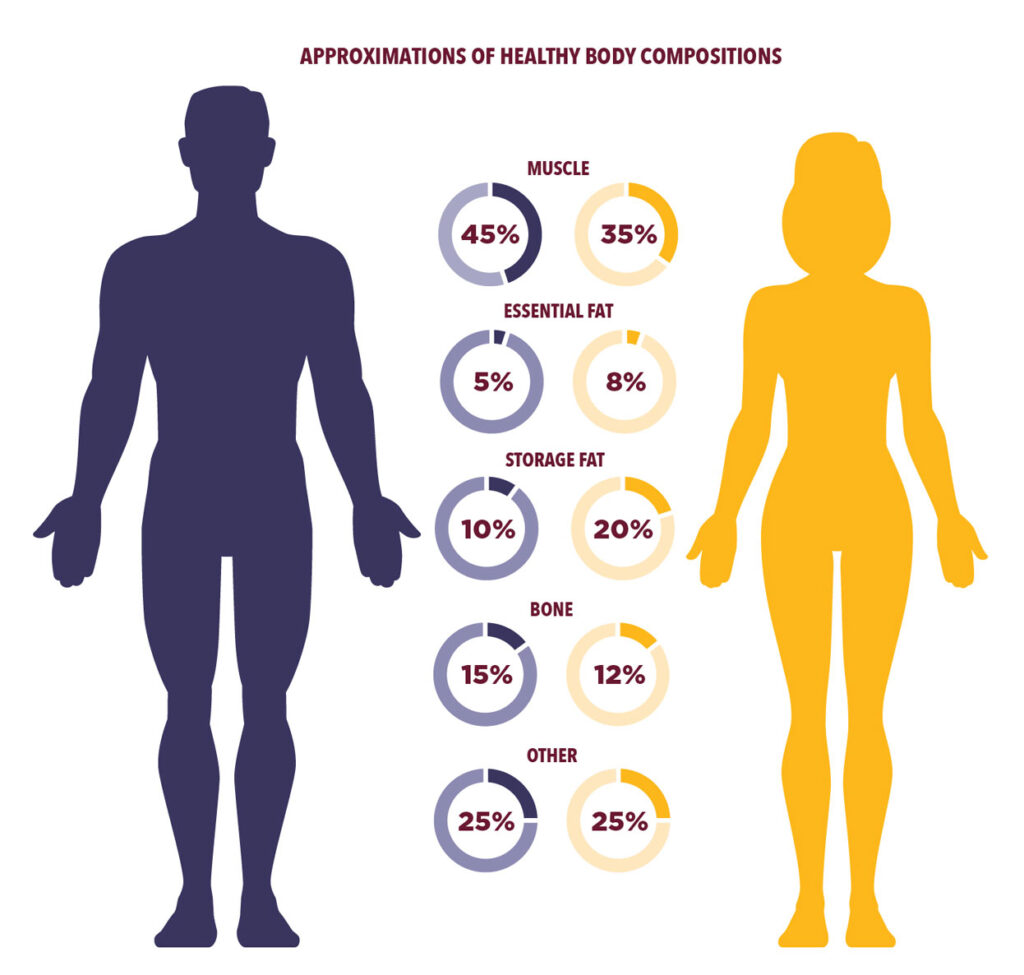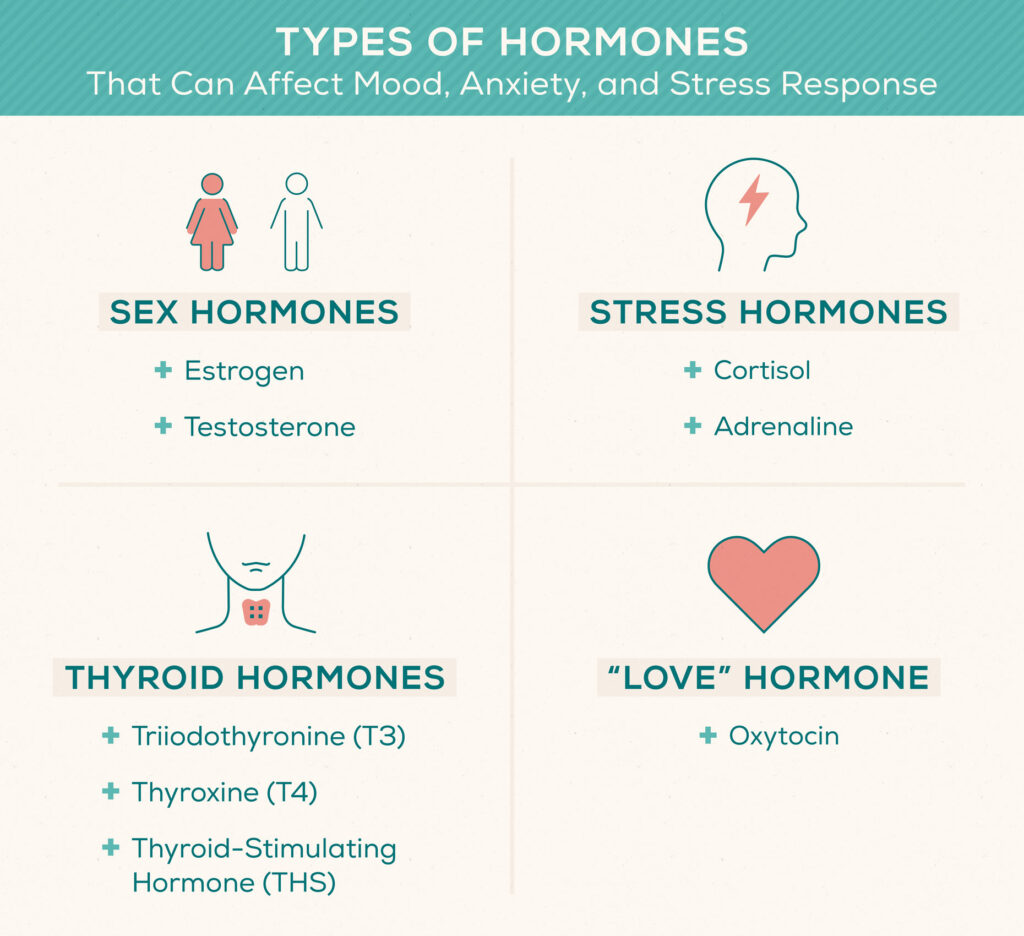Men vs. Women: Unveiling the Differences in Weight Loss Journeys
The desire for a healthy weight transcends gender. Yet, the path to achieving and maintaining it can be remarkably different for men and women. Biological variations, hormonal fluctuations, and even societal pressures all contribute to a unique experience for each sex. Weight loss isn’t a one-size-fits-all equation. Understand how your gender impacts your journey and find success with LifeRx.md’s tailored weight loss strategies.
Lets dive into the fascinating science behind the disparity in men’s and women’s weight loss journeys. Where we’ll explore physiological factors, hormonal influences, and lifestyle considerations. By understanding these differences, you can develop a personalized approach that empowers you to reach your weight loss goals.
Understanding the Biological Field: Men vs Women
The human body is a complex battlefield when it comes to weight management. Men and women are equipped with different biological tools for this fight. Understanding these inherent differences – in body composition, metabolic rate, and hormonal makeup – is the first step to crafting winning weight loss strategies. Let’s find out the fascinating science behind the battlefield of men vs. women in weight loss.
Body Composition

Men naturally possess a higher percentage of muscle mass compared to women. Muscle tissue burns more calories at rest, giving men a metabolic advantage. Women, on the other hand, have a higher percentage of body fat, particularly around the hips and thighs, designed for childbearing and hormonal regulation.
Metabolic Rate
Due to their greater muscle mass, men generally have a higher basal metabolic rate (BMR), the number of calories burned at rest for basic functions. This translates to a natural calorie-burning edge for men.
Hormonal Disharmony
Hormones play a significant role in weight management. Estrogen, the predominant female sex hormone, can influence fat storage and appetite regulation. Fluctuating estrogen levels throughout a woman’s life cycle, such as during menstruation, pregnancy, and menopause, can impact weight management efforts. Men’s hormonal profile, with testosterone playing a key role, tends to be more stable, offering a degree of consistency when it comes to metabolism.
Genes & Genetics
DNA plays a role in weight predisposition. Some genes can influence factors like metabolic rate, body fat distribution, and hunger regulation. While the interplay of genes and weight is complex, understanding your genetic makeup can provide valuable insights for your personalized weight loss journey.
Hormonal Hurdles: Navigating the Female Cycle

Women face unique hormonal challenges that can affect weight loss. Here’s a breakdown of some key players:
- Estrogen: This hormone promotes fat storage, particularly around the hips and thighs. Fluctuations in estrogen levels throughout the menstrual cycle can lead to bloating, water retention, and increased cravings.
- Progesterone: Levels rise during the luteal phase of the menstrual cycle, potentially leading to increased hunger and water retention.
- Thyroid Hormones: Thyroid function can be impacted by sex hormones, leading to weight fluctuations or sluggish metabolism in some women.
- Sex Hormone-Binding Globulin (SHBG): This protein carries sex hormones in the bloodstream. Lower SHBG levels, more common in women with PCOS or on birth control pills, can lead to increased free testosterone, potentially impacting weight management.
Understanding these hormonal fluctuations allows you to adjust your weight loss strategies accordingly. For example, focusing on nutrient-dense foods and mindful eating can help manage cravings during pre-menstrual phases.
Building Muscle for Men: Optimizing Your Weight Loss Journey
Men naturally have a higher muscle mass, which translates to a metabolic advantage. Here are some tips to leverage this advantage and further optimize your weight loss journey:
- Strength Training is Key: Prioritize weight training exercises that target major muscle groups. This not only builds muscle but also helps maintain existing muscle mass, which continues to burn calories even at rest. Aim for at least two to three strength training sessions per week.
- Fuel Your Workouts: Men often require a higher calorie intake compared to women to support muscle growth and repair. Focus on consuming enough protein, around 0.8-1 gram per pound of body weight, to fuel muscle building and prevent muscle loss during a calorie deficit.
- Don’t Neglect Cardio: While strength training is crucial, incorporating moderate-intensity cardio exercises like running, swimming, or cycling can help burn additional calories and improve overall fitness.
Lifestyle Considerations: Calibrating Your Approach

Beyond biology, lifestyle habits significantly impact weight loss success for both men and women. Here are some key considerations:
- Dietary Choices: Men and women may have different dietary needs based on activity levels and body composition. Men might require higher calorie intake to support their muscle mass, while women might benefit from focusing on nutrient-dense, lower-calorie options.
- Physical Activity: Exercise plays a crucial role for both sexes. Men often gravitate towards weight training, while women might prefer a mix of cardio and strength training. However, both genders benefit from incorporating a variety of exercises to build muscle, boost metabolism, and improve overall health.
- Stress Management: Chronic stress can raise cortisol levels, a hormone that promotes fat storage, particularly around the abdomen. Both men and women should prioritize stress management techniques like mindfulness exercises, yoga, or meditation.
- Sleep Adequacy: Insufficient sleep disrupts hormones that regulate appetite and metabolism. Aim for 7-8 hours of quality sleep nightly for optimal health and weight loss management.
Portion Control & Mindful Eating: A Universal Approach
While men and women have distinct weight loss challenges, one strategy remains universally important: mindful eating and portion control. Here’s how to incorporate these practices into your journey:
- Read Food Labels: Understanding portion sizes and calorie content empowers you to make informed choices.
- Plan Your Meals: Planning meals and snacks beforehand helps avoid unhealthy choices when hunger strikes.
- Practice Mindful Eating: Pay attention to hunger and satiety cues. Eat slowly, savor your food, and avoid distractions while eating.
- Downsize Your Plates: Using smaller plates can create the illusion of larger portions and help with portion control.
Building Sustainable Habits for Long-Term Success

Weight loss isn’t just about achieving a number on the scale; it’s about establishing sustainable lifestyle changes for long-term health. Here are some tips to ensure your weight loss efforts are long-lasting:
- Find Activities You Enjoy: Exercise shouldn’t feel like a chore. Explore different activities like dancing, hiking, or team sports that you find enjoyable and can stick with in the long run.
- Set Realistic Goals: Don’t aim for unrealistic weight loss goals. Focus on setting smaller, achievable goals that will keep you motivated.
- Celebrate Non-Scale Victories: Weight loss isn’t just about the number on the scale. Celebrate improvements in energy levels, mood, and overall well-being.
- Find Your Support System: Surround yourself with supportive friends and family who encourage your healthy lifestyle choices.
LifeRx.md: Your Personalized Weight Loss Partner
At LifeRx.md, we recognize the distinct challenges faced by men and women on their weight loss journeys. We offer a comprehensive telehealth program designed to address your individual needs and goals. Here’s how we can help:
- In-depth Consultations: Our medical professionals conduct thorough consultations to understand your medical history, body composition, and lifestyle habits. This personalized approach ensures your weight loss strategies are tailored to your unique needs.
- Hormonal Optimization: We may recommend strategies to address hormonal imbalances that might be hindering your progress, such as natural supplements or dietary adjustments.
- Nutritional Guidance: Our team develops personalized meal plans that consider your gender-specific needs and preferences. For men, we might focus on providing sufficient protein to support muscle mass and metabolism. For women, we can create plans that address hormonal fluctuations and cravings, while ensuring adequate nutrient intake for overall health.
- Fitness Coaching: Our certified coaches design exercise programs that take into account your fitness level, goals, and any gender-specific considerations. Men might benefit from programs that emphasize strength training and building muscle, while women might enjoy a mix of cardio, strength training, and activities they find enjoyable.
- Support & Accountability: LifeRx.md provides ongoing support and accountability through regular consultations with your healthcare team. We offer resources, answer your questions, and celebrate your milestones, ensuring you stay motivated and on track towards your weight loss goals.
By understanding the biological and lifestyle factors that influence weight loss for men and women, coupled with personalized weight loss strategies, LifeRx.md empowers individuals to achieve lasting success in their weight management.


















